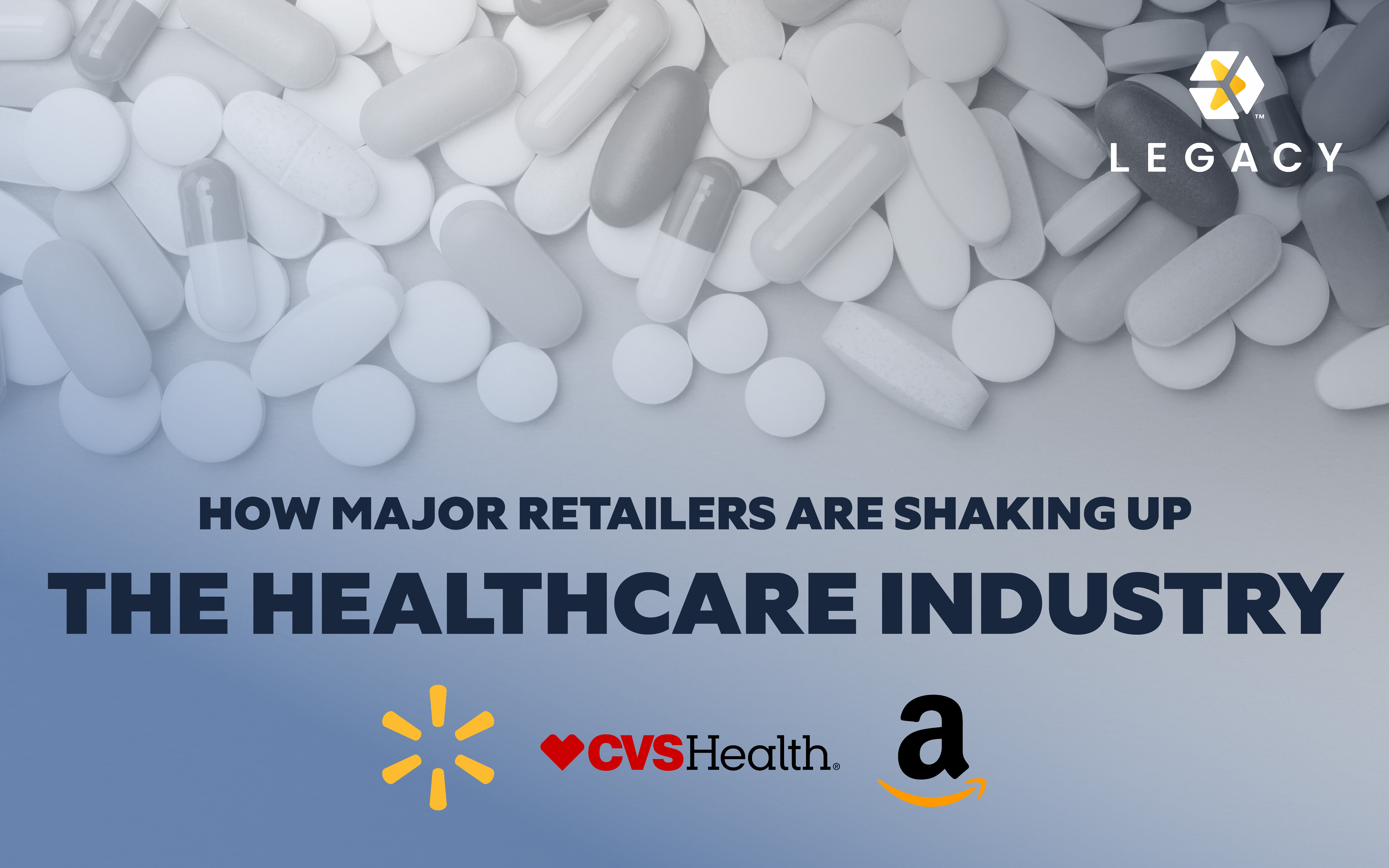In recent years, retail giants Amazon, Walmart, and CVS Health have made bold moves into the healthcare sector. Amazon’s acquisition of PillPack, Walmart’s launch of Walmart Health centers, and CVS Health’s expansion through acquisitions and HealthHUBs exemplify these initiatives. These ventures raise the question: was the gamble worth it? As they strive to dominate this new frontier, all three companies face significant challenges while seeking to innovate, meet evolving consumer needs, and integrate technology into the healthcare experience. This blog explores the healthcare journeys of Amazon, Walmart, and CVS Health, evaluating the outcomes of their endeavors thus far.
Amazon’s Entry into Pharmaceuticals
Amazon’s entry into pharmaceuticals marked a paradigm shift in the healthcare landscape, positioning the retail giant as a disruptive force in the prescription drug market. The acquisition of PillPack in 2018 epitomized Amazon’s relentless pursuit of innovation and customer-centricity. PillPack’s novel approach to pharmacy services, emphasizing convenience and personalized care, seamlessly aligned with Amazon’s ethos, providing it with a strategic foothold in the highly regulated pharmaceutical industry.
By addressing the inefficiencies of traditional pharmacy chains, Amazon aimed to offer a disruptive alternative while diversifying its revenue streams and fortifying its competitive edge in the retail sector. Leveraging PillPack’s expertise and technology, Amazon sought to revolutionize healthcare delivery, harnessing the power of logistics and e-commerce to enhance the consumer experience.
Expansion Beyond PillPack
Beyond the acquisition of PillPack, Amazon has been expanding its healthcare services through several initiatives:
- Amazon Care: A telehealth service that provides virtual and in-person healthcare for Amazon employees and other businesses. This service combines telemedicine with home visits from healthcare professionals, aiming to provide comprehensive care that is both convenient and efficient.
- Amazon Pharmacy: Launched in 2020, this service allows customers to order prescription medications online and have them delivered. Integrated with Amazon Prime, it offers added convenience and potential cost savings for members.
- Wearables and Health Monitoring: The introduction of devices like the Amazon Halo, a fitness tracker that provides health insights and promotes wellness, demonstrates Amazon’s commitment to integrating health monitoring with its broader ecosystem.
Amazon has seen some success in the e-commerce space of healthcare, leveraging its logistical prowess and technological infrastructure to streamline healthcare services and enhance the consumer experience.
Walmart’s Response: Brick-and-Mortar Healthcare Expansion
As Amazon began to establish its presence in the digital healthcare space, Walmart, as the main competitor, decided to counter Amazon’s move by expanding its healthcare services into the brick-and-mortar territory. In 2019, just one year after Amazon acquired PillPack, Walmart introduced Walmart Health centers. These centers were envisioned as a bold step towards providing accessible and affordable medical services, aligning with Walmart’s overarching mission of helping people save money and live better.
Walmart Health centers offered a range of services, including primary care, dental care, counseling, labs, and audiology at transparent, low prices. This initiative was part of Walmart’s strategy to become a one-stop-shop for consumers, leveraging its vast retail footprint to make healthcare more accessible, especially in underserved areas.
Challenges and Closure
Despite initial enthusiasm, Walmart’s experience with Walmart Health centers has been marked by significant challenges. The decision to shutter all health centers across five states underscores the culmination of these challenges and highlights the complexities of integrating healthcare services into Walmart’s traditional retail model. Rising operational expenses and a challenging reimbursement landscape have rendered the healthcare business financially unviable for Walmart at present.
However, Walmart maintains its dedication to offering affordable healthcare options to the public. Leveraging its extensive retail network, the company prioritizes providing low-cost healthcare services to its customers, particularly in underserved areas. This commitment is evident in Walmart’s pharmacy services, where it offers affordable prescriptions, immunizations, and health screenings.
CVS Health: Expanding the Healthcare Footprint
CVS Health has emerged as a major player in the healthcare industry, alongside Amazon and Walmart. Leveraging its extensive network of retail pharmacies and healthcare services, CVS Health positions itself as a comprehensive provider of medical services, integrating pharmacy services with broader healthcare offerings.
Vertical Integration with Aetna
CVS’s acquisition of Aetna in 2018 created a vertically integrated healthcare company. This integration combines pharmacy services with health insurance, delivering more cohesive care and enhancing patient outcomes.
Expansion of HealthHUBs
HealthHUBs, CVS’s redesigned stores, offer a broader range of healthcare services including chronic disease management, wellness, and mental health services. This expansion demonstrates CVS’s commitment to accessible and integrated healthcare.
MinuteClinics
MinuteClinics provide walk-in medical care for minor illnesses, vaccinations, and preventive services. With over 1,100 locations, they make healthcare more accessible and reduce the burden on traditional healthcare facilities.
Focus on Preventive Care and Chronic Disease Management
CVS emphasizes preventive care and chronic disease management through services such as medication management and counseling, aiming to improve health outcomes and reduce overall healthcare costs.
Common Goals and Conclusion
The entry of major retailers like Amazon, Walmart, and CVS Health into the healthcare sector highlights a common drive to meet the growing demand for convenient, affordable, and personalized healthcare. Leveraging their retail networks and technological capabilities, these companies aim to reshape the healthcare landscape, making it more accessible and consumer-centric.
However, this convergence of retail and healthcare raises important questions. Will this development lead to better healthcare overall, or will it pose challenges such as data privacy concerns and the potential monopolization of services? How will these companies navigate the complex regulatory landscape and ensure the sustainability of their healthcare initiatives?
As these retail giants continue to innovate and expand their healthcare offerings, the future promises a more dynamic and interconnected healthcare system. While the potential benefits are significant, careful consideration of ethical, operational, and regulatory implications is essential to ensure that this integration truly serves the best interests of consumers and the healthcare system as a whole. The world eagerly awaits the next chapter in the saga of Amazon, Walmart, and CVS Health’s relentless pursuit of growth and innovation in the healthcare industry.




